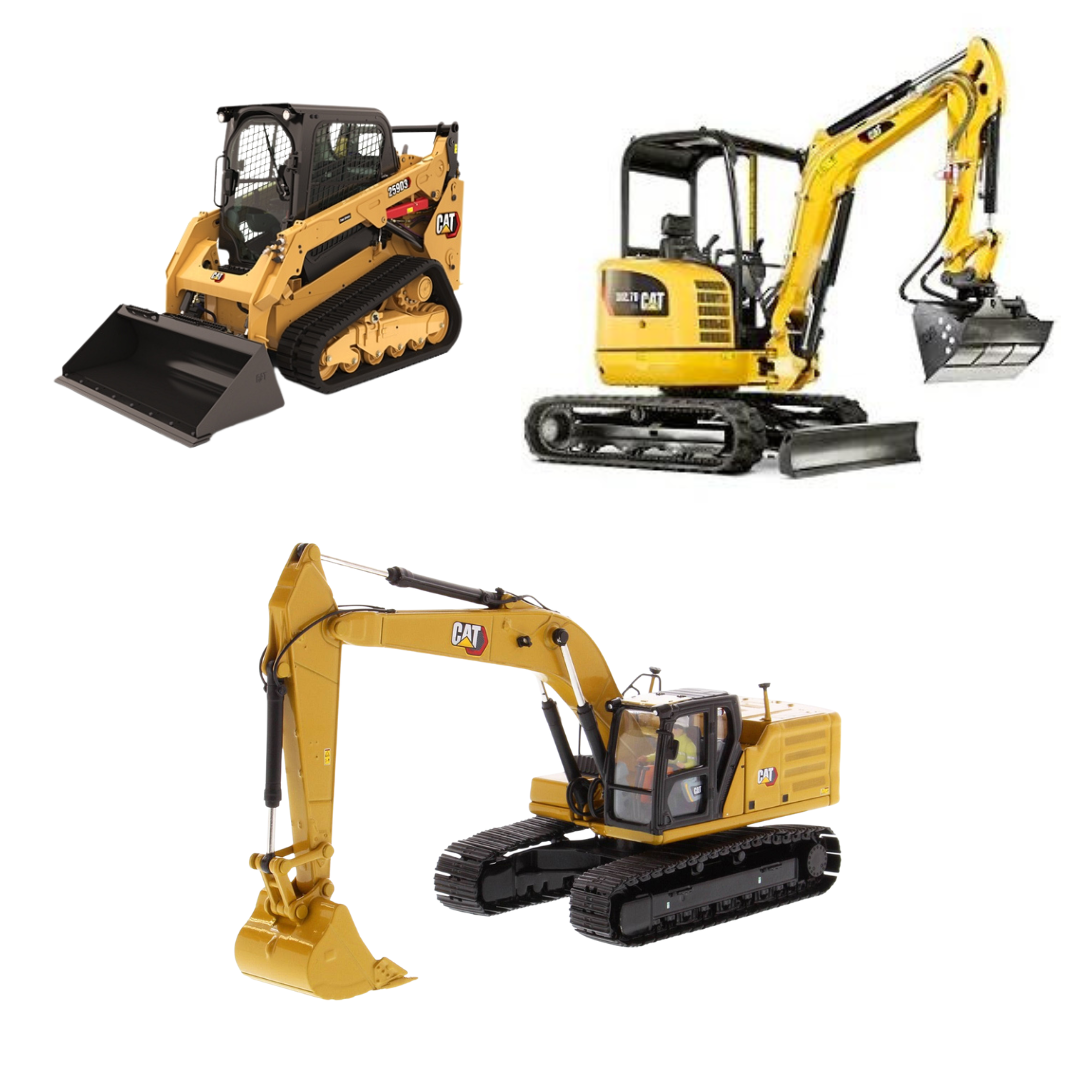Construction Equipment Rentals: Heavy Duty Equipment for Your Tasks
Construction Equipment Rentals: Heavy Duty Equipment for Your Tasks
Blog Article
Optimize Your Budget Plan by Comprehending the Costs Related To Building And Construction Devices Leasings
Recognizing the full range of prices connected with building and construction equipment services is important for optimizing your budget. What methods can be used to successfully take care of these costs and guarantee a more effective rental experience?
Introduction of Rental Expenses
When considering building and construction devices rentals, recognizing the linked expenses is paramount for reliable budgeting and project preparation. Rental costs can differ substantially based on a number of factors, consisting of equipment kind, period of rental, and place. The initial rental charge often mirrors the devices's market need and its connected functional capabilities, affecting the overall expenditure.
In addition to the base rental price, ancillary expenses might arise, such as transportation costs, fuel additional charges, and upkeep charges. It is vital to represent these additional costs to properly assess the overall expense of renting devices. The rental period can affect rates; longer leasings might certify for discounted rates, while short-term leasings could incur higher daily fees.

Failure of Rental Prices
A thorough understanding of rental rates is crucial for specialists and job supervisors aiming to enhance their budgets. Rental rates for construction equipment typically contain numerous parts, consisting of base rates, time-based charges, and use costs.
Base prices are the core charges connected with the service of the tools, commonly figured out by the type and dimension of the equipment. These rates can vary dramatically, affected by elements such as equipment need, accessibility, and regional market patterns. Time-based fees, which might be daily, weekly, or monthly, offer to accommodate various job timelines and rental durations.
Additionally, rental prices may consist of usage fees, which are relevant when devices is utilized past a specified limit, making sure that the rental company can make up deterioration. Seasonal demand variations can also influence rental rates, with peak building and construction seasons generally regulating higher rates.
Furthermore, recognizing the rental business's plans concerning upkeep and insurance can give additional understanding into the general cost structure. By assessing these elements, service providers can make informed choices, ensuring the choice of rental tools aligns with both job needs and budget plan restraints.
Added Fees to Consider
Comprehending the ins and outs of added costs is essential for specialists to handle their general service expenditures effectively. Past the typical rental prices, various additional charges can considerably influence the complete price of tools service. These costs usually consist of distribution and pick-up costs, which can differ based upon distance and logistics associated with carrying the devices to and from the task site.
Moreover, some rental companies might enforce gas additional charges if the devices is returned with less fuel than when rented out. It is additionally important to be mindful of possible cleansing fees, particularly for customized tools that needs extensive maintenance after use.

Thoroughly assessing the rental contract and clarifying these added charges upfront can aid professionals avoid unanticipated expenses and ensure that budgets stay intact digger loader throughout the task lifecycle.
Repair And Maintenance Costs
Normal repair and maintenance costs are often ignored elements that can dramatically influence the total cost of building tools leasings. When renting out equipment, it is critical to consider not just the rental costs but also the potential prices connected with maintaining the machinery in optimum operating problem.
Lots of rental business consist of basic maintenance as component of the rental agreement; however, a lot more unforeseen failures or extensive repair work can cause added expenses. It's necessary to review the rental contract thoroughly to comprehend what upkeep solutions are covered and what duties fall on the renter.
Furthermore, devices that is not well-kept can cause inadequacies on duty website, possibly causing delays and increasing project costs. To reduce these risks, it is zoom boom telehandler recommended to carry out regular evaluations and maintain open communication with the rental service provider concerning any issues that arise during usage.
Insurance Policy and Responsibility Expenses
Insurance coverage and obligation costs are crucial components that can significantly influence the total cost of building equipment services (heavy equipment rental). These prices make sure that both the rental company and the customer are secured from prospective financial losses emerging from mishaps, damage, or burglary during the rental period

Furthermore, customers ought to understand any type of deductibles or exemptions in the insurance plan, as these can affect prospective out-of-pocket expenditures. Comprehending the terms and problems of any type of insurance policy coverage is important to stay clear of unexpected costs. Ultimately, budgeting for insurance coverage and responsibility expenses can assist ensure a smoother rental experience and safeguard versus economic risks connected with building and construction projects.
Final Thought
To conclude, an extensive understanding of the expenses connected with construction devices leasings is crucial for effective budget plan administration. By assessing rental prices, additional fees, maintenance costs, and insurance policy individuals, demands and companies can minimize unexpected expenditures. This strategic approach not only enhances cost-effectiveness but also guarantees that projects progress smoothly and efficiently. Ultimately, informed decision-making regarding tools services adds to the total success of building and construction ventures.
Rental prices can differ significantly based on several factors, consisting of devices type, period of leasing, and location (mini excavator rental). The rental period can influence prices; longer leasings may certify for reduced prices, while short-term rentals could incur greater everyday costs
By carrying out comprehensive study and engaging with trusted rental firms, specialists can efficiently browse the intricacies of rental rates, ultimately optimizing their financial sources.
Beyond the common rental rates, different supplementary fees can significantly affect the complete cost of tools rental. Rental business usually offer responsibility insurance that covers injuries to 3rd events or damage to building, while equipment damage insurance policy can cover the price of repair work or substitute if the rented out equipment is damaged.
Report this page